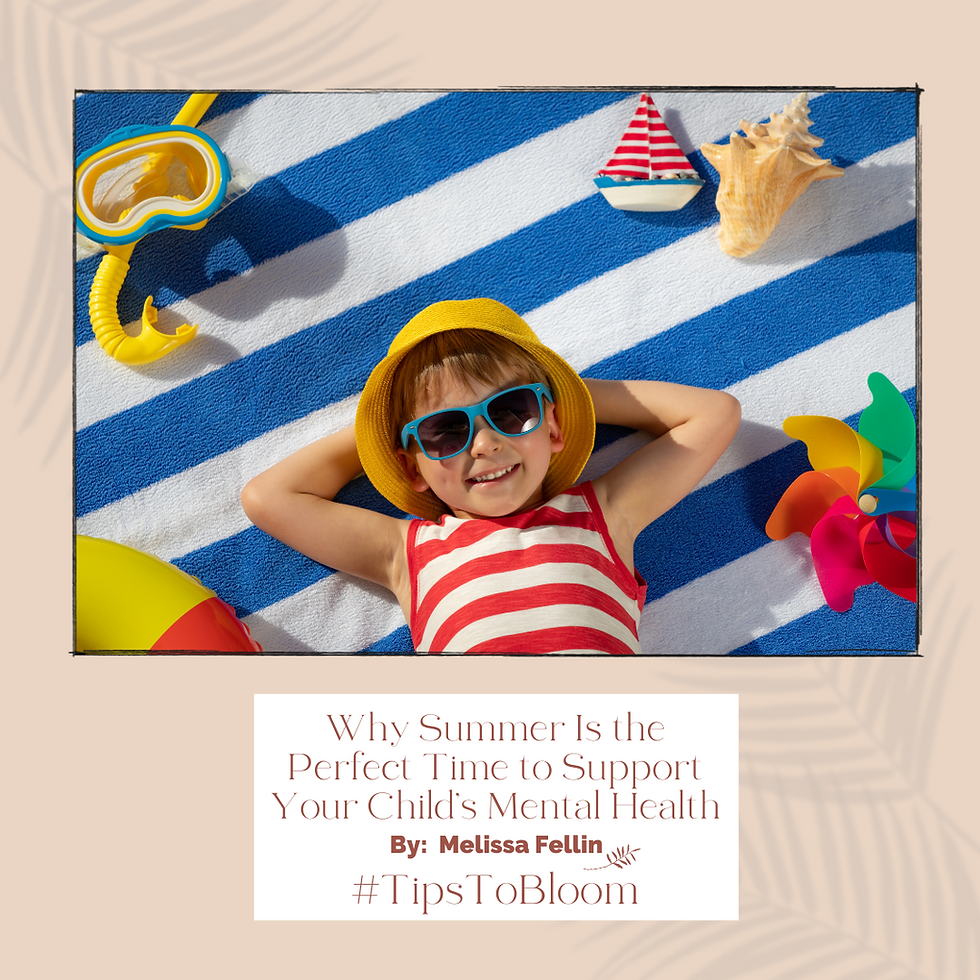Why Summer Is the Perfect Time to Support Your Child’s Mental Health
- Melissa Fellin
- Jul 14, 2025
- 2 min read
Updated: Jul 24, 2025

Summer often brings a much-needed break from the demands of the school year. The busy mornings, full days, homework struggles, and social pressures suddenly slow down. But while summer offers a pause from academics, it can be one of the most important seasons to invest in your child or teen’s mental health.
Here’s why:
1. There’s More Time—and Less Pressure
During the school year, therapy can feel like “one more thing” on an already packed calendar. In the summer, schedules often open up, allowing for more flexibility and consistency in attending sessions. With fewer external demands, kids and teens may also be more open, focused, and emotionally available to engage in meaningful work.
2. A Chance to Reset Before the School Year
Summer is a valuable opportunity to reflect, regroup, and build emotional resilience before heading into a new grade or a new school. Whether your child is entering high school, changing schools, or simply hoping for a smoother year ahead, therapy can help them prepare emotionally and mentally for the transition. This is the time to work on self-esteem, executive functioning skills, social confidence, and emotional regulation—before the stress returns.
3. Support Through Major Transitions
For many children and teens, summer comes with big life transitions—graduations, moves, new friend groups, or changing family dynamics. These shifts, while sometimes exciting, can also trigger anxiety, grief, or uncertainty. Therapy during the summer can help kids make sense of these changes and feel more grounded as they move through them.
4. Maintaining Routine and Connection
Summer can sometimes feel unstructured or isolating, especially without the social interactions school provides. Therapy offers a consistent touchpoint—a familiar adult who listens, validates, and helps navigate difficult emotions. This structure can be especially important for kids who thrive on routine or who struggle with change.
5. Preventative Support Matters
Waiting until fall to seek help may mean navigating school-year stress while also trying to address ongoing emotional struggles. By working on mental health proactively in the summer, you give your child or teen the chance to build coping tools and internal resources that can carry them into the school year with more confidence and calm.
The Takeaway
Just as summer can be a time of growth in nature, it can also be a time of emotional and psychological growth for young people. Therapy doesn’t have to be in response to a crisis—it can be a space for reflection, connection, and skill-building.
If you’re thinking about supporting your child or teen’s mental health, summer is not a season to pause—it’s a season to invest.



